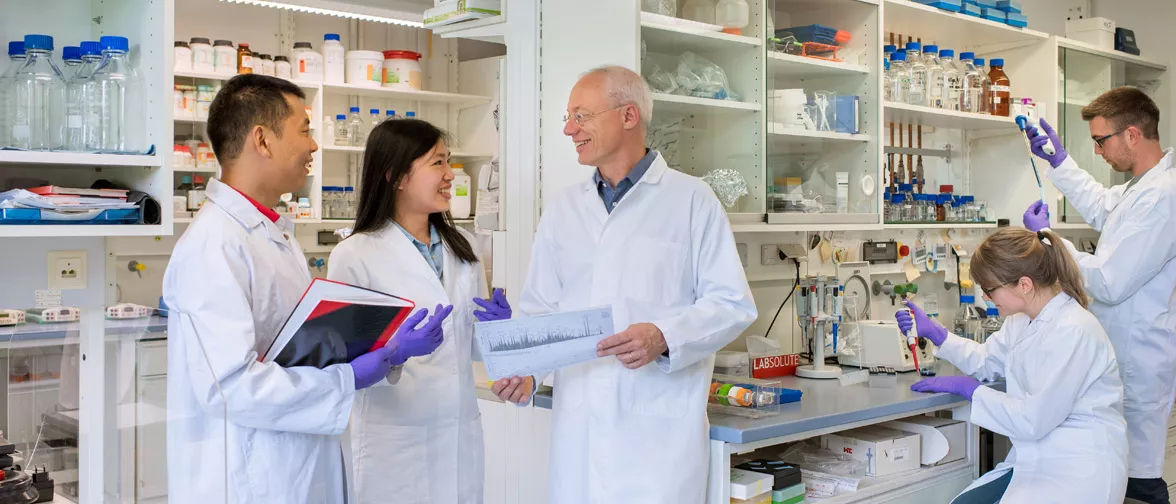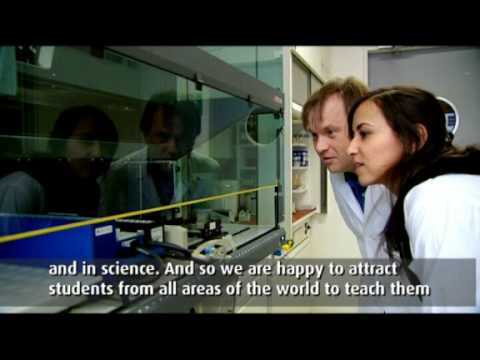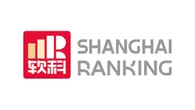Molecular Biotechnology
Master of Science (M.Sc.)
Were your preliminary studies in biology or molecular biotechnology so interesting that you would now like to expand and deepen your knowledge? In the Master’s program in Molecular Biotechnology at the TUM you can further your education and specialize in the fields of biomolecules, cells, organisms, medicine, and technology. You will learn to evaluate complex scientific questions, structure approaches and evaluate research results. You can make your contribution to research in diseases or become a specialist for example in protein engineering, cell culture technology or structure-based bioinformatics. With the Master's program in Molecular Biotechnology, you have a wide range of opportunities to shape your future.

Key data
| Type of Study | Full Time |
| Standard Duration of Studies | 4 Semesters |
| Credits | 120 ECTS |
| Start of Degree Program | Winter Semester |
| Application Period | April 1 - May 31 |
| Admission Category | Aptitude Assessment for Master’s |
| Language of Instruction | German |
| Main Location | Weihenstephan (Freising) |
| Costs | Student Fees, Tuition fees for international students |
In the Master's program in Molecular Biotechnology, you will deal with the production and construction of natural and artificial biomolecules. While classical biotechnology is mainly concerned with the production route and the associated engineering process – such as fermentation or separation processes – molecular biotechnology focuses on the biosynthetic performance of the cell itself. It also concerns the construction and efficient synthesis of artificial biomolecules with improved or completely new functions through protein design. This links to the new field of Synthetic Biology. By intervening in the structure and function of the biomolecule, you can change the genetic configuration of the producing cell or organism. This field of work therefore requires the interdisciplinary application of genetic engineering, protein chemistry and biophysical and bioinformatics methods.
The focus of "molecular" biotechnology is on the biomolecules themselves. This means in particular the macromolecules – in addition to lipids and metabolic intermediates (metabolites) – and the cells that synthesize them. Cells, both microorganisms and cultured cells from animals or plants, are of interest not only as producers but also as objects of study.
Technical instruments and aids, from ultra-modern physical measuring instruments to fermentation plants and computer methods, play a major role in molecular biotechnology.
After the Master's program, you can stay at university and do a doctorate or enter the biotechnology industry. In the medical field, you will find jobs in the development of pharmaceuticals and therapeutics, help in the further development of diagnostics, and conduct research work on interfaces, for example in prostheses or tissue replacement. If you are more interested in industrial biotechnology, you can find work in developing new processes and materials from renewable resources. Alternatively, you could go into the agricultural sector and work with genetically modified plants and animals as well as modified microorganisms.
The Master's program in Molecular Biotechnology course is based on five topics:
- biomolecules
- cells
- organisms
- medicine
- technology
40 credits must be earned in this core area. Theoretical and specialized practical modules allow you to create your competence profile in 2 main areas and learn experimental techniques in everyday research. At least 45 credits must be chosen from this area.
You can also choose interdisciplinary qualification modules to deepen your language skills, or on the topics of politics, economics, ethics, or culture. 5 credits can be achieved from these areas.
The language of instruction is mainly German; therefore, you should provide evidence that you have sufficient knowledge of German.
Interest aroused? Just take a look at an exemplary curriculum!
As a graduate of the Master's program in Molecular Biotechnology, you will be able to analyze complex scientific questions in the field of biotechnology, molecular biology, and related disciplines, structure procedures and evaluate research results. This also enables you to write a subsequent dissertation.
You will have deepened your knowledge in special fields such as protein engineering, molecular microbiology, genetic engineering, or structure-based bioinformatics and can independently identify research questions, create reports, and analyze the results accordingly.
You will understand the structure and properties of biomolecules, for example, a protein, and be able to use this knowledge to design strategies for modifying the protein’s functions. Your skills will be in demand, for example, when it comes to developing biological agents for the treatment of serious diseases.
You will be familiar with molecular biological methods, such as genetic analysis, cell culture techniques, and enzymatic processes and their theoretical foundations, which you can apply in research and industry. Your application-oriented education also makes it easy for you to familiarize yourself with complex tasks.
All students must pay a semester contribution to the Studierendenwerk.
++ NEW ++ International students from third countries, i.e. from countries that are not part of the European Economic Area, will be charged tuition fees from the winter semester 2024/25. All information on fee levels, waivers and scholarship programs can be found on the website on tuition fees for international students.
Application requirements and admission requirements
The prerequisite for admission to a Master's degree course in Molecular Biotechnology is a qualified Bachelor's degree of at least six semesters or an equivalent degree in the fields of Molecular Biotechnology, Biology and Biochemistry or a comparable degree course, which you have obtained at a German or foreign university. However, you can also apply if you are about to graduate from university - we want you to be able to continue your studies quickly! You can find more information on this in the current subject examination and study regulations, Annex 2 to the aptitude procedure for the Master's degree program.
In this aptitude procedure, we check whether you have the necessary prerequisites and motivation for the degree program.
At the time of application, you must submit a transcript of records with modules amounting to at least 120 credits [ECTS], modules amounting to at least 150 credits for a seven-semester Bachelor's degree program, and modules amounting to at least 180 credits for an eight-semester Bachelor's degree program.
An application is also possible if the qualifying degree has not yet been completed. However, proof of the qualifying degree must be provided within one year otherwise the course cannot be continued.
The aptitude assessment procedure is carried out annually and only for applications in the following winter semester.
Language certificate
For all German-language degree programs, e.g., MSc Molecular Biotechnology, you must provide proof of sufficient German language skills by the end of the application period.
You automatically have this proof if
- you have a German university entrance qualification
- you are a German national with an international higher education entrance qualification who has attended a German-language school for at least 2 years
- you have completed a German-language Bachelor's degree program
Please find additional information on our language certificate website.
Semester fees and tuition fees at TUM
All students must pay a semester contribution to the Studierendenwerk.
++ NEW ++ International students from third countries, i.e. from countries that are not part of the European Economic Area, will be charged tuition fees from the winter semester 2024/25. All information on fee levels, waivers and scholarship programs can be found on the website on tuition fees for international students.
Application period and start of studies
The application period is from April 1 to May 31 of each year for the following winter semester. It is only possible to start studying in the winter semester. Please find the semester dates here.
Online application
You can only apply via our online application portal, for which you must set up an applicant account. You can find instructions for your online MSc-application here.
You upload your documents for the application to the Master's degree program in Molecular Biotechnology directly in the portal. Only when you receive a letter of admission do you have to send your documents in paper form by post to the TUM Center for Study and Teaching. The final certificate of the qualifying preliminary studies (e.g., B.Sc.) must be submitted no later than one year after admission.
Depending on the country in which you obtained your qualifying university degree (e.g. BSc), you must submit different documents via our online application portal. Some extra documents are required, especially for degrees outside the EU/EEA. Please check which documents are required in your case and make sure you have them ready for your online application. Please visit our page for international applications for more information.
Aptitude assessment
In a subsequent aptitude procedure, we check whether you have the appropriate qualifications and skills for the degree program.
Applicants must complete a curricular analysis on an online platform as part of the application process
As part of the first stage of the aptitude assessment process, the curricular analysis assesses the qualifications acquired in the first degree course on the basis of the existing grade and the existing specialist knowledge on the basis of the achievements documented in the transcript of records.
You can find the link and the application number to complete the curricular analysis in the online application portal. Before entering the data for your curricular analysis, however, you must first create the electronic application in the TUM application portal and submit it digitally in the application portal. This is the only way to generate an individual and, therefore, valid application number for you. Without this application number, you will not be able to create or complete a valid curricular analysis.
Important note on generating a valid application number: Saving your application temporarily in the application portal is not (!) sufficient to generate an application number! An application number is only generated by sending the application digitally! Only by sending (!) will your preliminary application and application number be rewritten to the same, but then a valid application number and only then technically created as a valid application in the TUM application portal. This application number must, therefore, be generated in good time before the curricular analysis is created by the submission process. And: Don't worry! Documents can still be uploaded to the application portal after this digital submission process.
For modules that cannot be clearly assigned to subject groups based on their title, it is recommended that you also upload the relevant content (e.g., module handbook, module descriptions). Please enter all (!) verifiable university modules in the curricular analysis.
The aptitude committee will use the curricular analysis to check the extent to which you have the basic skills of the following subject knowledge groups from your previous studies and will assess these on a points scale.
- Basic natural sciences (excluding life sciences, e.g. inorganic, physical and organic chemistry, physics, computer science, mathematics)
- Biosciences and biotechnology (e.g. biochemistry, protein chemistry, biotechnology, bioprocess engineering, animal/human/plant physiology, genetics, bioanalytics, immunology, cell culture technology, protein engineering, etc.)
- modules from the natural sciences and / or biosciences or a related field.
The overall assessment of the first stage is the sum of the calculated score of the curricular analysis and the calculated score for the average grade.
If you have achieved at least 80 points, you have been admitted.
If you have achieved less than 70 points, you will be rejected.
The remaining applicants will be invited to an aptitude interview (so-called "second stage").
Enrollment
Once you are admitted to this program, you have to accept your study place in your applicant account. Subsequently you have to submit your certified paper copies for enrollment and pay the semester fees. All relevant information will appear in your TUMonline applicant account. See here for details on the enrolment process and here for the glossary of documents.
Please note that from the time where you receive admission, we will only contact you via your tum.de/mytum.de email address, that you find in your applicant account. Make sure that these emails can be received by you. See here for instructions how to set up your email address at TUM.
Would you like to learn more about the study program and the TUM Campus Weihenstephan? Watch our video!
- Degree documentation
The degree program documentation presents the concept of the study program.
- Module Catalog
We update the module catalog every semester. Depending on your start of studies (i.e. depending on your version of the Fachprüfungs- und Studienordnung (FPSO)) you can find the module manual here, in which all currently offered modules are described.
- Module catalog 20231 (start of studies WiSe 23/24)
- Module catalog 20181 (start of studies WiSe 18/19)
- Curriculum
The degree chart gives you an overview and recommendation, which modules you should take in which semester according to academic and examination regulations (FPSO).
- Timetable (TUM ID required for login):
This timetable is intended to give you an overview of the planned compulsory and elective modules of a semester. It is for orientation purposes only and will not be updated during the semester!
Via TUMonline you can have a timetable created for each semester according to FSPO.
You can also create your own individual timetable, which can contain not only the dates of the selected courses, but also your personal appointments.
First steps with TUMonline
Your individual study plan for your statutorily correct study planning. To be used ONLY for the start of studies until summer semester 2022/23.
The statutes from incl. winter semester 2023/24 (start of studies 2023W) are completely mapped via TUMonline, a study plan is no longer necessary. Please edit exclusively with Windows PC and exclusively with MS-EXCEL!
- General Academic and Examination Regulations at TUM (APSO)
- Academic and Examination Regulations (FPSO)
- Examination dates & registration via TUMonline
In TUMonline you can register for the module examinations that accompany your studies.Important: You can only take most of the exams if you have actively registered yourself via TUMonline within the registration period. The registration and deregistration period will be displayed at the exam date.
- Further examination matters
- Board of Examination
The board of examination is a committee consisting of university professors and lecturers of the degree program. The chairperson of the board of examination of your degree program is Prof. Dr. Prof. Dr. Brigitte Poppenberger. Applications to the board of examination are received by the secretary and submitted to the board of examination for decision. You can reach the secretary by sending an email to examination.co(at)ls.tum.de.
Scientific Project Planning (WPP)
Scientific Project Planning (WPP) is part of the thesis and should be taken successfully before starting the actual thesis (for students starting the master program from WiSe23/24). - only for students who started their studies before WiSe 2023/24!
The Scientific Project Planning (WPP) is a compulsory examination for Master students of Biology and is evaluated with 5 credits. It must be successfully completed before beginning the Master's thesis. Registration for the WPP is possible from 70 credits and can be done either simultaneously or after registration of the Master's thesis.
- Handbook for Scientific Project Planning (WPP)
- Form for the notification of scientific project planning
- Grade notification form for scientific project planning (not applicable for students starting WiSe23/24)
All information about the WPP is also available in the module description in TUMonline (module number WZ22101). From start of study WiSe23/24 in WZ2590.
Important information on the submission of theses
A pre-study internship is not required for admission.
Bus connection Weihenstephan – Garching
More information about
Detailed, degree program - specific information about graduation can be found in the
Wiki Life Sciences – Study and Teaching - Graduation (TUM ID required for login)
Personal student advising

Dr. Michael Scharmann
Campus Office
1st floor, room 07
Tel. +49 8161 71 3804
msc-biosci.co(at)ls.tum.de
Phone consultation hours: Mon-Thu: 13:00-15:00, Fri. 13:00 -14:30
Open office hours Wednesday 15:00 - 17:00
Individual consultation appointments by arrangement
Everything you need to know!
Many general questions can already be answered by the FAQs.
FAQs about studying
Current and course-specific information for students of the TUM School of Life Sciences







